Through summer school, Canadian students explore different pathways to higher education
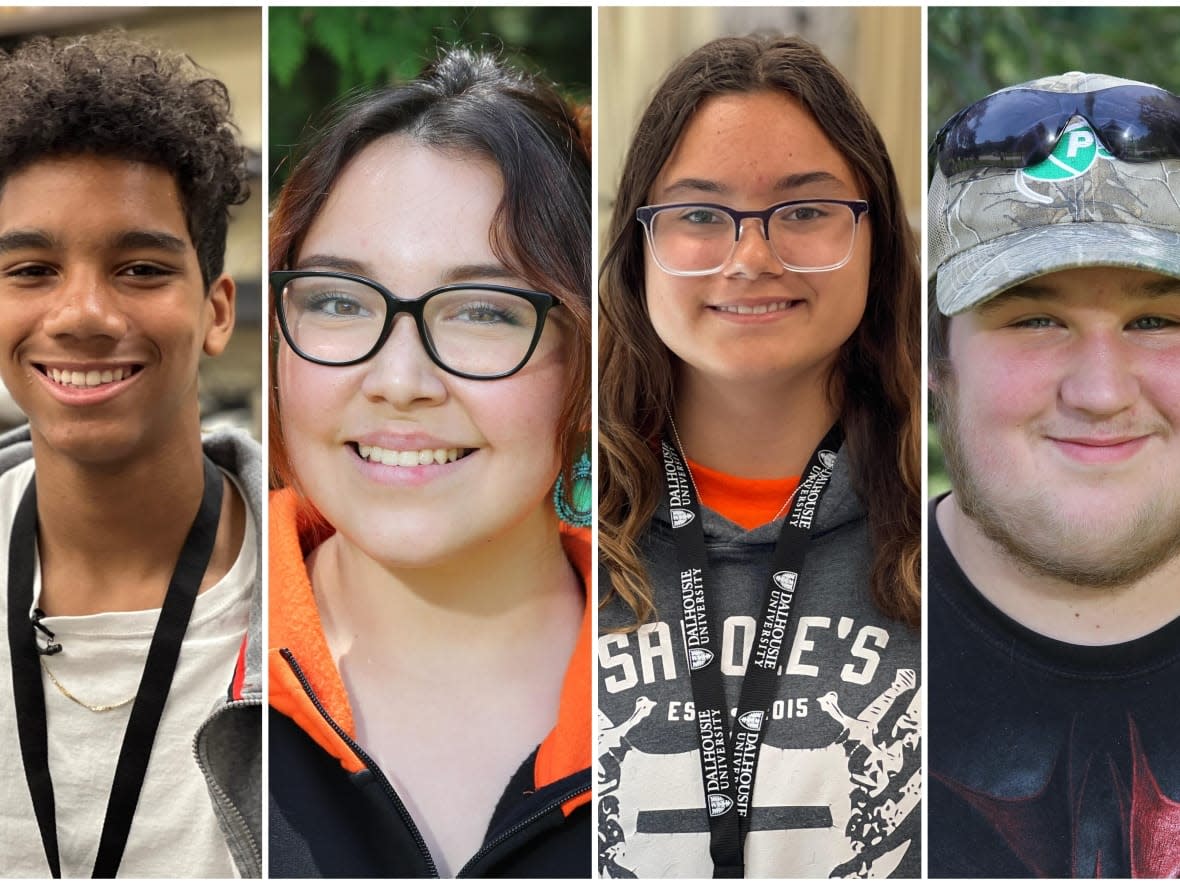
Faith Robinson never really enjoyed high school. When the 16-year-old student from Nipissing First Nation fell behind on some of her classes, she was encouraged to attend summer school to make up the difference.
Now, as one of over a dozen students who attended a two-week, dual-credit program at Canadore College in North Bay, Ont., this July, Robinson is one credit closer to her high school degree — and she has another credit to put toward a post-secondary degree at a local college, encouraging study at a higher level.
"I went to the course and, surprisingly, it was actually kind of fun. I enjoyed it. I made some new friends," said Robinson.
While taking courses on campus, Robinson and her peers caught a glimpse of the academic world beyond high school, where mandatory course loads and a highly structured environment can disenchant at-risk students from applying to college.
That's why the summer school programs at Canadore and Dalhousie University in Halifax are designed to motivate high schoolers to apply to college, showing them different pathways to post-secondary success — but these initiatives have to reach kids even earlier to be effective, according to one expert.
Paths largely fixed in high school, expert says
Most students start considering college and university toward the end of high school. That timeline is too late to correct course for students who aren't on a clear trajectory to higher education, said Karen Robson, an associate professor and the Ontario research chair in educational achievement and at-risk youth at McMaster University in Hamilton, Ont.
"By the time students are in high school, the research has shown that their paths are largely fixed," said Robson.
"So if we're trying to encourage young people who have all of the characteristics of low university and college attendance already kind of mapped onto their identities, it's a little too late to do it when they're 16, 17, 18 years old."
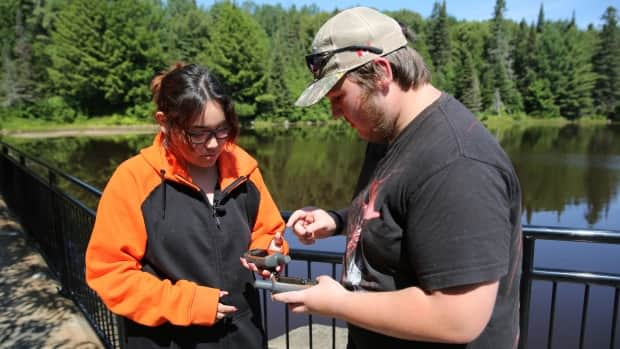
According to Robson, there are three primary factors that tend to predict a student's pathway to university: their socioeconomic status; whether their parents attended a post-secondary institution; and, especially for those in Ontario, whether a student is in the applied stream (for hands-on courses) versus the academic stream (theory-oriented).
The Canadore program is effective because it encourages all types of students to apply, Robson said — regardless of their grades or whether they know what they want to do professionally.
"What I liked about that program [as it was described] is that … it doesn't matter what your marks are, it doesn't matter if you don't know how to do this paperwork. It doesn't matter if you don't know what you want to do when you grow up. It's fine, just come and experience this environment."
The goal of Canadore's program is to expose younger students to college while still offering the support they receive at the high school level, said Rebecca Gould, a high school teacher for Nipissing-Parry Sound Catholic School Board who facilitates the dual-credit program.
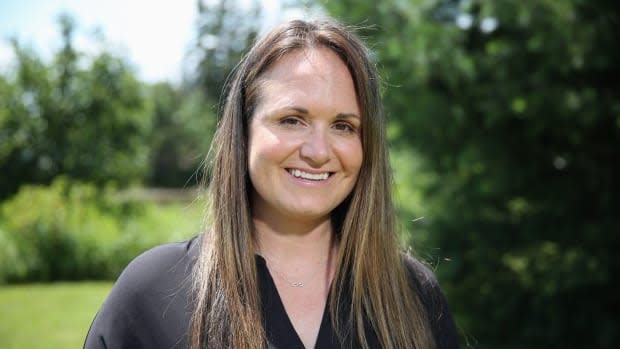
"They have the safety of having a high school teacher there, making sure that they're there on time, that they have their schoolwork done, that that the assignments are turned in properly — things that they don't get when they're at college, but they do get at high school," said Gould.
"So it's kind of a nice pairing between the two opportunities."
Students who enrolled in the free program took a geomatics class, learning how to navigate the woods with a compass during one week, and a fitness and lifestyle management class during another, complete with workout sessions at the campus gym.
"I loved it," said Nick Michel, a 15-year-old North Bay student going into Grade 10. "I'm just a hands-on [person]. I don't like writing or sitting down doing things — I'm constantly moving."
"I felt a lot older walking around the college halls," he added.
WATCH | How the pandemic made the transition to post-secondary education even harder:
Programs helpful for first-generation students
Gould, who has been involved with the Canadore program for four years, said that it can be a life-changing experience for teens who aren't familiar with the university setting — especially those who will be first-generation college students.
"The ultimate success is when a student completes the dual credit course and is inspired to complete their high school credits with a different attitude, with a new future in mind, and then going on to actually take the course and be successful," she said.
Having been a first-generation student herself, Robson said that the interventions are especially important for kids who don't have a history of post-secondary education in their family.
"They all have to navigate this themselves, and it's stressful. If you come particularly from a racial minority that isn't represented on campus, it's even more alienating," she said. "There's [fewer] resources. There's [fewer] ways of knowing how to navigate these complex social structures that you have no experience with."
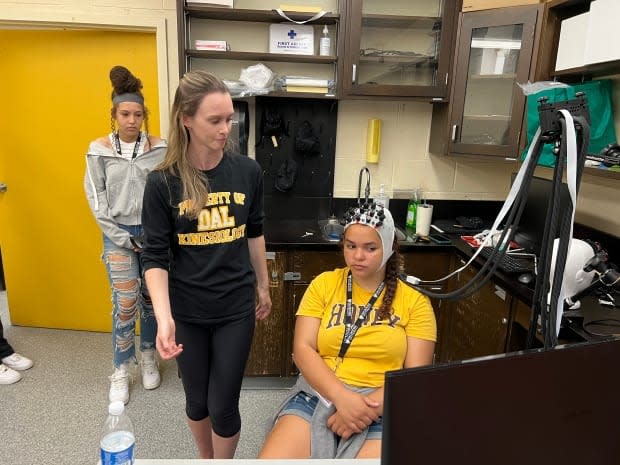
While the dual-credit program at Canadore gives students a leg-up in acquiring the credits they need to graduate, "I would say that equally as important is that social experience of being in this place, to know that you belong there, that it's not this alien place, that you're just kind of faking it to be in," said Robson.
Dalhousie University in Halifax ran two adjacent pathway programs for Indigenous students and for Black or African Nova Scotian students — two groups historically underrepresented in the health sciences in Atlantic Canada.
Deion Coward, a 14-year-old student from Dartmouth, N.S., who is going into Grade 9, said that he was interested in the program because it encourages Black and Indigenous people to pursue a career in the medical fields.
"I just got to learn about everything, and for me, it's what I'm most interested in … Because I don't really want to have a job that I don't like or and then I have to go back [to] university and learn something else," he said.
'It's about catching them young'
Data from the 2016 census shows that, while an increased number of First Nations, Métis and Inuit people were experiencing improved educational outcomes, non-Indigenous counterparts were 90 per cent likely to have completed high school, while Indigenous youth were 70 per cent likely.
A more recent Statistics Canada report on youth and education says that Black youth (27 per cent) and youth who are not a visible minority (23 per cent) were less likely than other groups to have obtained a university degree.
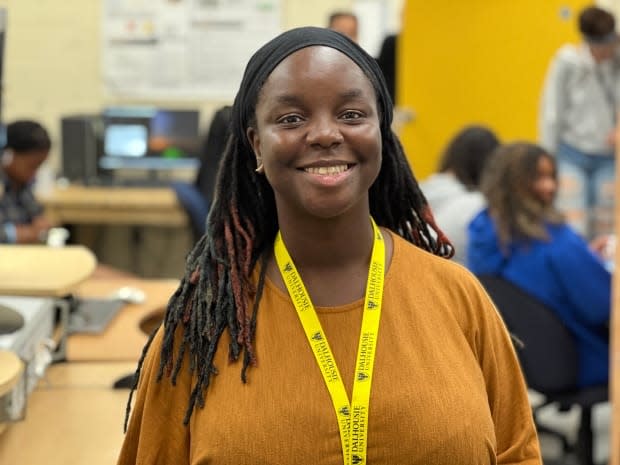
"For us, it's about catching them young," said Timi Idris, who is manager of Dalhousie University's PLANS program (Promoting Leadership in health for African Nova Scotians).
The program combined lab-based workshops — like learning to take blood pressure or how to mold a tooth — with cultural activities, such as Indigenous crafts and African drumming. Students also had a chance to network with Black and Indigenous professionals working in the medical field.
"It's mostly about representation and getting them to see that they can do it and that we're going to support them and hold their hands through the process," Idris said.
That was true of Nora Harquail, a 14-year-old Mi'kmaq student from Eel River Bar First Nation, who said that a career in the health sciences feels within her reach after attending Dalhousie's summer camp program.
"I am pretty interested in the medical field. I'm also very interested in other things. But this is sort of a way to see if I really could go into these kinds of things," Harquail said. "And I really think I can now."


